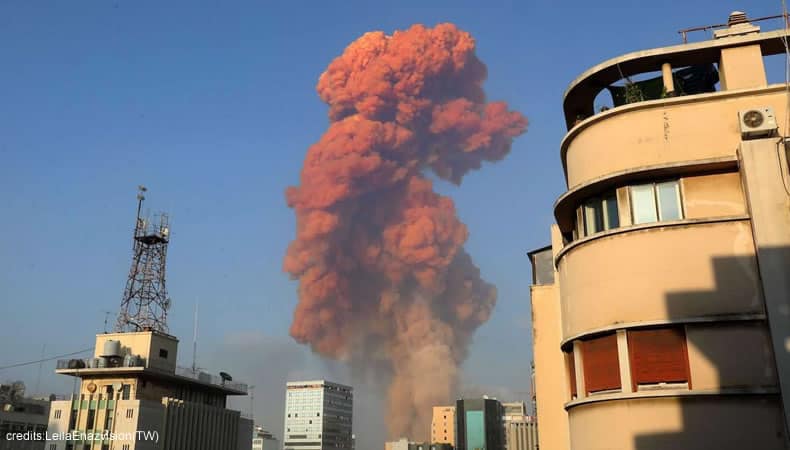Lebanon to create jugs and glasses from Beirut rubble, how turns a tragedy into an opportunity

Transform one of the greatest tragedies in the country’s memory into an opportunity is the philosophy guiding a group of Lebanese citizens in an upcycling project started from the rubble of the explosions in Beirut on August 4 and ends up in the homes of the residents. The destroyed glass reconverted into jugs and other objects is a way to restore life to a destroyed part of the city, but also to send a message to a country where the logic of recycling has always struggled to take root.
Lebanon does not have a good relationship with its waste. In 2015, thousands of people took to the streets to protest the country’ inability to dispose of, while the streets of Beirut were teeming with rubbish left to rot for days. A movement was also born, called Puzzate. In the following years, the issue made itself felt again, and even today, that of waste is one of the pillars of street protests.
The country was declared the fifth most polluted in the world, according to the Pollution index, which takes into account the contamination of water, air, and soil. To influence in this sense, the continuous burning of waste, the widespread storage in the open, the discharges into the river and marine waters.
A context of the total absence of a national strategy in waste management, which has also made itself felt in the area of recycling. Only 8 percent of the country recyclable waste enters the recycling cycle, a figure that shows a complete lack of institutional and citizen sensitivity on the issue.
The new creative recycling initiative, upcycling, which has become popular in Lebanon, involves the reconversion of glass rubble left on the ground by the explosions of 4 August into household objects.That day, an ammonium nitrate deposit in the port of Beirut caught fire, giving rise to one of the biggest explosions ever seen in recent history, in Lebanon as elsewhere.
Hundred and ninety people died, there are still several injured and missing, and a whole piece of the city disappeared. The streets near the port turned into deposits of debris and rubble, and work began immediately to free and dispose of the tons of material.One estimate points out that there is rubble for 5 thousand tons of glass. Some of them ended up in northern Lebanon, specifically in Tripoli, where some companies are treating them to give them new life.




